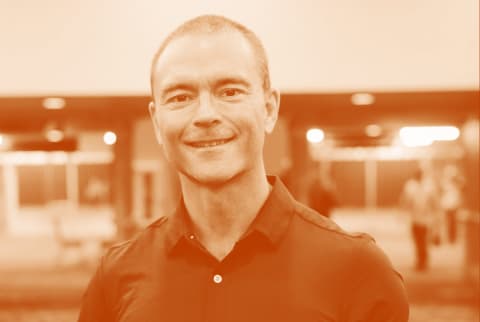Advertisement
3 Surprising Tips For Longevity, From A Biochemist


At this point, we've waxed poetic on the many, many ways to promote longevity. The thing is, though, we can never get enough tips: Who doesn't want to live a longer and healthier life? So when an expert approaches us with even more underrated ways to optimize longevity, we listen.
Enter former biochemist and New York Times bestselling author Robb Wolf: On this episode of the mindbodygreen podcast, he fills us in on some surprising ways to increase longevity—that is, your lifespan and healthspan. "Lifespan is how long an organism is going to live," he says. "Healthspan is how functional that organism is over [the years]." The best part? He includes pretty simple steps.
Below, find Wolf's go-to tips:
Strength training.
According to Wolf, maintaining muscle mass is the No. 1 thing you can do to optimize longevity. "There's this guarantee of losing muscle mass, losing the ability for maximum power production, as we age that begins in our 30s," he explains. (Specifically, you lose 3 to 8% of muscle mass per decade1 after you turn 30, and at an even higher rate after 60.) It's a process called sarcopenia, or age-related muscle mass loss, that happens as you age; between the ages of 20 and 80, research has found you can actually lose 40% of your muscle mass.
The key, says Wolf, is to delay sarcopenia as long as you can: "If you want to avoid a rest home, if you want to avoid neurodegenerative disease... All of that plays favorably to maintaining adequate muscle mass into aging," he says.
In terms of how to maintain muscle mass, Wolf is quick to sing the praises of strength training. "That's where the real return on investment lies with the longevity-healthspan story," he explains. While any physical activity will do, says Wolf, he especially loves workouts with basic strength training mechanics (read: pressing, pulling, squatting, hinging, lunging, etc.)—just make sure you switch it up from time to time.
"Your body gets super efficient at the things that you do," Wolf explains. "The real key in this [longevity] story is a novel load, a novel experience—something you haven't really done before or is achieved in a different way. And a very minimal dose can go a long way."
Protein intake.
The how much protein should I eat conversation is a hotly debated one, but as Wolf mentions above, maintaining muscle mass is the most important factor to mind as you age. As such, adequate protein intake is crucial. Of course, the amount differs depending on the person (here's how to tell if you're not getting enough), but you want to make sure to meet your own threshold.
"People are doing these (in my opinion) really extraordinary interventions, like super-low protein intake, fasting for a week at a time, and doing it at a rather frequent clip—all in the hopes that they're going to mitigate some disease potential, while they are absolutely increasing the likelihood of worsening age-related sarcopenia if they take this stuff too far," Wolf adds.
That's not to say he's against intermittent fasting in general: He supports some time-restricted eating to help optimize metabolic flexibility, but he stresses the importance of knowing your limits—when you push yourself too far, any benefits from fasting can start to backfire.
"If people want to do a little bit [of fasting] here and there [or] once a quarter, do a three-day fast; that's great," he says. "But just make sure that when you flip that back around, eat your protein, lift your weights, because my nervousness is people whittling away muscle mass as they age."
Adequate sun.
You've likely heard it a million times: Vitamin D is crucial for overall health and longevity. It's essential for a number of processes in the body, and research shows the sunshine hormone can even increase the activity of telomerase2—or the building blocks of telomeres that protect cellular DNA from aging.
While you can get your fill of vitamin D in a number of ways (foods, supplements, etc.), Wolf suggests some sunlight for beneficial levels. In fact, getting some sun on your person is associated with longevity directly: "The difference in morbidity and mortality of people who get adequate sun versus inadequate sun is as significant as a smoker versus a nonsmoker3," says Wolf.
That's not to say you should leave your skin unprotected (a proper sunscreen is downright essential), but some good ole sunshine is pretty important for overall well-being. It just takes balance.
The takeaway.
Wolf's tips for increasing longevity are simple, yet they're often overlooked in favor of fasting and other autophagy-inducing players. That's not to say those aren't helpful, but don't sleep on these three factors, either.